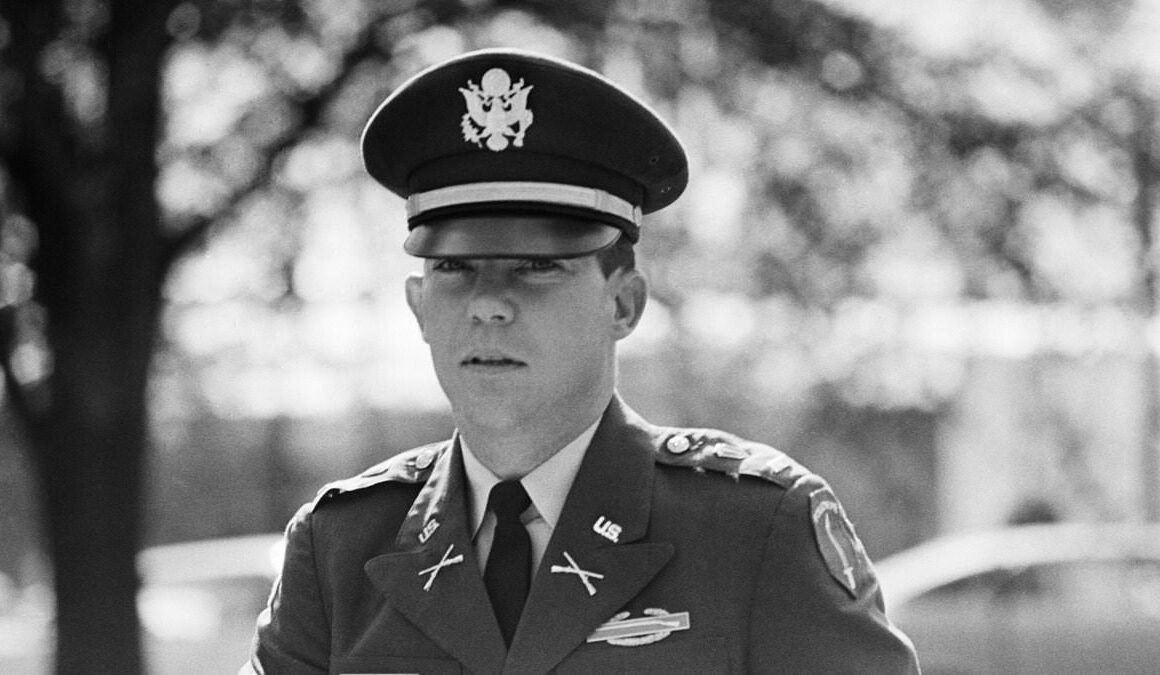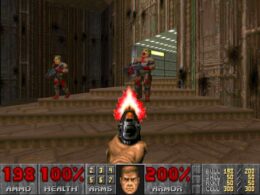William Calley, the army officer who was the only person to be convicted in relation to the mass murder of Vietnamese civilians, including children, in what came to be known as the My Lai massacre, has died at the age of 80.
The Washington Post on Monday first reported Calley’s death, which happened in April, according to a death certificate the newspaper cited. The New York Times, citing Social Security Administration death records, also reported Calley’s death.
Neither paper reported a cause of death. Calls to numbers listed for Calley’s son, William L. Calley III, were not returned.
American soldiers killed 504 people on March 16, 1968, in Son My, a collection of hamlets between the central Vietnamese coast and a ridge of misty mountains, in an incident known in the West as the My Lai Massacre. The killings shocked the U.S. and galvanized the anti-war movement.
Initially charged in an Army court martial for 102 deaths, Calley was sentenced to life in prison in 1971 for the killing of 22 civilians. He was behind bars only three days before then President Richard Nixon ordered him released under house arrest. After being discharged from the service, he lived out his life quietly in Georgia.

William Calley, pictured here in 1970, was the only person to be convicted in relation to the mass murder of Vietnamese civilians in what came to be known as the My Lai massacre, has died at the age of 80

Calley is shown here around the time of his trial in 1971
William Laws Calley Jr. was born June 8, 1943, the only son and fourth child of a Miami businessman. In his youth, he went by the nickname Rusty.
He attended four high schools in four years, two of them military academies. Calley was forced to repeat the seventh grade after being caught cheating.
After he flunked out of junior college, he worked as a bellhop, dishwasher, insurance investigator and train conductor.
Broke in Albuquerque, New Mexico, in 1966, he joined the Army and excelled.
Despite a poor academic record, Calley graduated from Officers’ Candidate School at Fort Benning thanks to the military’s then desperate need for platoon leaders one year to the day before the My Lai incident.
After his discharge, Calley married Penny Vick in 1976 and went to work for her father in the jewelry business in the city of Columbus, Georgia, becoming a certified gemologist. They had one son and later divorced.
Maintaining that he had merely followed orders and considering himself a scapegoat, Calley became a lightning rod for a country bitterly divided over the unpopular Vietnam War.
Calley refused to talk about My Lai with reporters or historians. In the aftermath of the war, he attempted to go on the lecture circuit but subsequently retired from public life.
Friends, however, said he admitted committing the deeds he was charged with and had learned to live with it.
A barber in his hometown told an investigative reporter in 1993: ‘He’s a good man, a fine man. Let it alone. Don’t drag all that stuff out again.’
While a man who ran a nearby clock store and a veteran of both Korea and Vietnam said Calley was a ‘hell of a fine fellow.’
‘He got a bum rap… You oughta bury it. The stuff is hard enough to live with… You ever kill a man. Then you don’t know what I’m talking about… You ever see enough blood to bathe in? Then you don’t know what it’s like.’
Despite being told that My Lai was a hotbed of communist National Liberation Front guerrillas, U.S. forces met no serious armed resistance and found very few weapons, according to the Army Historical Foundation.
Still they killed almost everyone there, and raped women and girls.
Four soldiers were brought up on charges stemming from the massacre but only Calley was convicted.
Calley spent three years in home detention at his apartment in Fort Benning, Georgia, where he had visits from his girlfriend, and was then paroled and cashiered out of the Army.
In 2009, he made his first public apology.
‘There is not a day that goes by that I do not feel remorse for what happened that day in My Lai,’ Calley told a Kiwanis Club in Columbus, Ohio. ‘I feel remorse for the Vietnamese who were killed, for their families, for the American soldiers involved and their families. I am very sorry.’
William Laws Calley Jr. was born June 8, 1943, the only son and fourth child of a Miami businessman. He attended four high schools in four years, two of them military academies. After he flunked out of junior college, he worked as a bellhop, dishwasher, insurance investigator and train conductor.
Broke in Albuquerque, New Mexico, in 1966, he joined the Army and excelled. Despite a poor academic record, Calley graduated from Officers’ Candidate School at Fort Benning one year to the day before the My Lai incident.
After his discharge from the Army, Calley married Penny Vick in 1976 and went to work for her father in the jewelry business in Georgia, becoming a certified gemologist. They had one son and later divorced.







